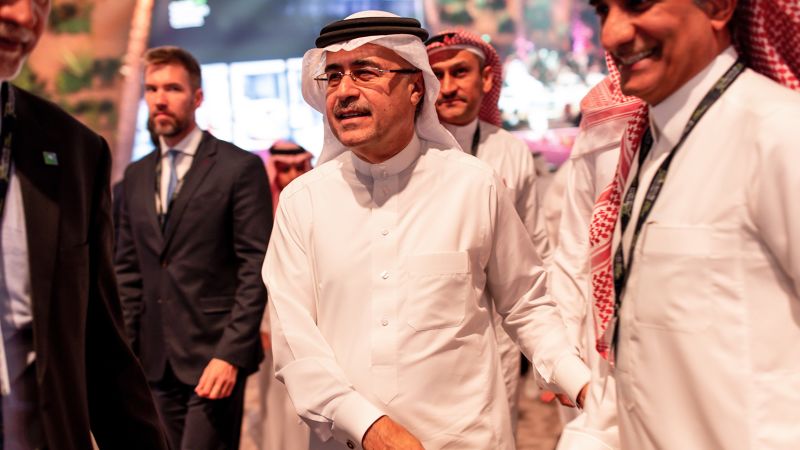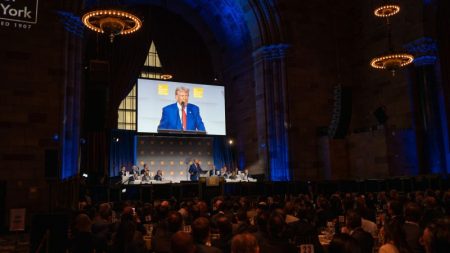BlackRock, the world’s biggest asset manager, said Monday it has appointed Amin Nasser, chief executive of oil giant Saudi Aramco, to its board of directors — despite the New York-based firm’s pledge to accelerate investment in climate-friendly companies.
BlackRock, which had $9.4 trillion assets under management at the end of June, announced Monday that Nasser’s post as an independent director — which is effective immediately — reflected “the importance of the Middle East” to its long-term strategy.
Nasser’s appointment will ensure the “continuity of regional expertise” once Bader Alsaad, chairman of the board of the Arab Fund for Economic and Social Development, leaves his post on the BlackRock board next year, the company said in a
statement.
Larry Fink, BlackRock’s chairman and CEO, touted Nasser’s “leadership experience, understanding of the global energy industry and the drivers of the shift towards a low-carbon economy,” as some of the reasons motivating his appointment.
So who is Nasser, and why might his new role raise the hackles of climate-conscious investors?
Nasser joined the state-run oil giant Saudi Aramco in 1982 as a petroleum engineer, rising up the ranks to become CEO in 2015. Four years later, the Saudi national led the company’s blockbuster public listing, raising $25.6 billion in what remains the world’s biggest-ever IPO.
Saudi Aramco is the world’s largest oil producer, with a market capitalization of 7.8 trillion Saudi riyal ($2.1 trillion). Last year, the firm posted a record annual profit of $161 billion — up 46% from the year before — as global oil prices shot up in the wake of Russia’s war in Ukraine.
But, like other fossil fuel companies, pressure has built on Saudi Aramco to take more drastic action to curb its greenhouse gas emissions. In 2021, Nasser announced the company’s ambition to reach net-zero emissions from the assets that it wholly owns and operates by 2050.
In October, the company also said it would create a $1.5 billion venture capital fund to invest in sustainable technologies globally, including carbon capture and storage and hydrogen fuels.
Even so, in December 2021, Nasser urged global leaders to continue investing in fossil fuels, arguing that the world cannot switch to clean energy overnight.
“Admitting this reality will be far easier than dealing with energy insecurity, rampant inflation and social unrest as prices become intolerably high. And net zero commitments by countries may start to unravel,” Nasser told an audience at the World Petroleum Congress.
Nasser’s appointment comes after BlackRock’s yearslong effort to encourage the companies it invests in to decarbonize.
Last year, the company said in a statement that “we anticipate that by 2030, at least 75% of BlackRock corporate and sovereign assets managed on behalf of clients will be invested in issuers with science-based targets or equivalent.”
The approach has riled up some conservative lawmakers in the United States who argue the focus of big asset managers, including BlackRock, on environmental, social and governance (ESG) investing — a type of investing that prioritizes a company’s sustainability and positive contribution to society — violated US antitrust laws.
Jeff Sonnenfeld, a senior associate dean for leadership studies at the Yale School of Management, told CNBC on Tuesday that Nasser “symbolically and substantively” represented Aramco, which would “blur” BlackRock’s image on ESG.
Still, the asset manager has said it expects to remain “long-term investors in carbon-intensive companies” due to their “crucial roles in the economy.”
The company previously said in a statement outlining its net-zero policy that it did not intend to divest from big carbon-emitting firms in the near term because such a move could jeopardize “an orderly transition to a net-zero economy in the long term.”
BlackRock declined to comment to CNN, referring instead to its Monday statement.
Read the full article here




